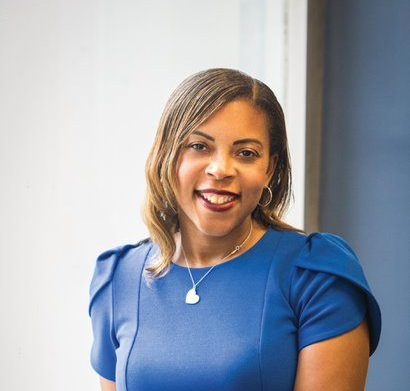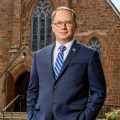Protests against racial injustice swept across the United States in 2020, along with a burgeoning understanding that, as a nation, we need to address systemic racism. Seton Hall is taking its own steps to improve diversity, equity and inclusion (DEI). A leader of this effort is Shawna Cooper-Gibson, vice president of student services, who along with associate professor Jonathan Farina, chair of the Faculty Senate, is chairing a University-wide committee to foster change as part of the comprehensive strategic plan. Seton Hall magazine editor Pegeen Hopkins recently spoke with Cooper-Gibson to learn more.
Would you describe the University’s DEI efforts?
We are evaluating needs within the Seton Hall community to reinforce a sense of belonging for all, recognizing we are all God’s children.
What projects have been launched so far?
To name a few: in July, we held a four-hour retreat with 50 employees and students across campus to discuss challenging topics and envision possible solutions. We didn’t want to nibble around the edges of issues. We wanted to look at the structures, policies and procedures that will enhance the sense of belonging we hope to create.
We have held anti-racism training with senior leadership and hosted a three-part policing panel to enhance dialogue related to law enforcement.
We also developed a Bias Education Support Team, to whom community members can report any instance of bias. The team can act as intermediaries and is designing programs and outreach to help prevent bias incidents.
How does the University’s Catholic identity influence its commitment to racial justice and dealing with systemic inequity?
Elizabeth Ann Seton helped found the Catholic educational system to address anti-Catholic prejudice, looking to create a welcoming space. I often quote Interim Vice President for Mission and Ministry Father Colin Kay when he says, “There are no strangers here.” We want to make sure no feels like a stranger on our campus. Being a welcoming environment is part of our Catholic tradition.
So our DEI efforts follow our mission and our patroness’s example. President Nyre has clearly stated that: “Seton Hall condemns in no uncertain terms the sin of racism and the acts of degradation it engenders against members of our human family and particularly our Black community.”
Today’s students are socially engaged and inclined toward activism. How is the University collaborating with them to find solutions?
We work very closely with our student leaders to identify how students can be engaged civically. To give one example, Seton Hall recently won an award from New Jersey for a student-run “get out and vote” campaign geared toward registering undergraduate students.
Our students are coming to us with their ideas, thoughts and concerns; we have a genuine dialogue about how to create a more welcoming space for everyone — because we can’t do this work without their input.
As we’ve gone on this journey as an institution, what has surprised you most?
I’ve been excited about the collegiality and partnership we fostered. Our nation is facing several pandemics right now: COVID-19, systemic racism and oppression, and people facing significant economic difficulties. And despite being in such challenging times, we are still coming together to enhance our campus and be one community.
What hurdles do you see Seton Hall facing in doing this work?
We have to continue to talk to each other and engage. In the Division of Student Services, we follow the motto of “communication, collaboration and coordination.” If we are not incorporating those three things, it will be much more difficult to move the needle forward. But as long as we continue to talk to each other, work together and do not duplicate efforts or make things redundant, then I think we will continue to do well.
What gives you hope?
The success of our students. I have been impressed with how engaged they have been — getting out the vote, keeping our campus healthy and safe, addressing injustices, not just across New Jersey or the United States, but across the world. That gives me hope for a better future.







